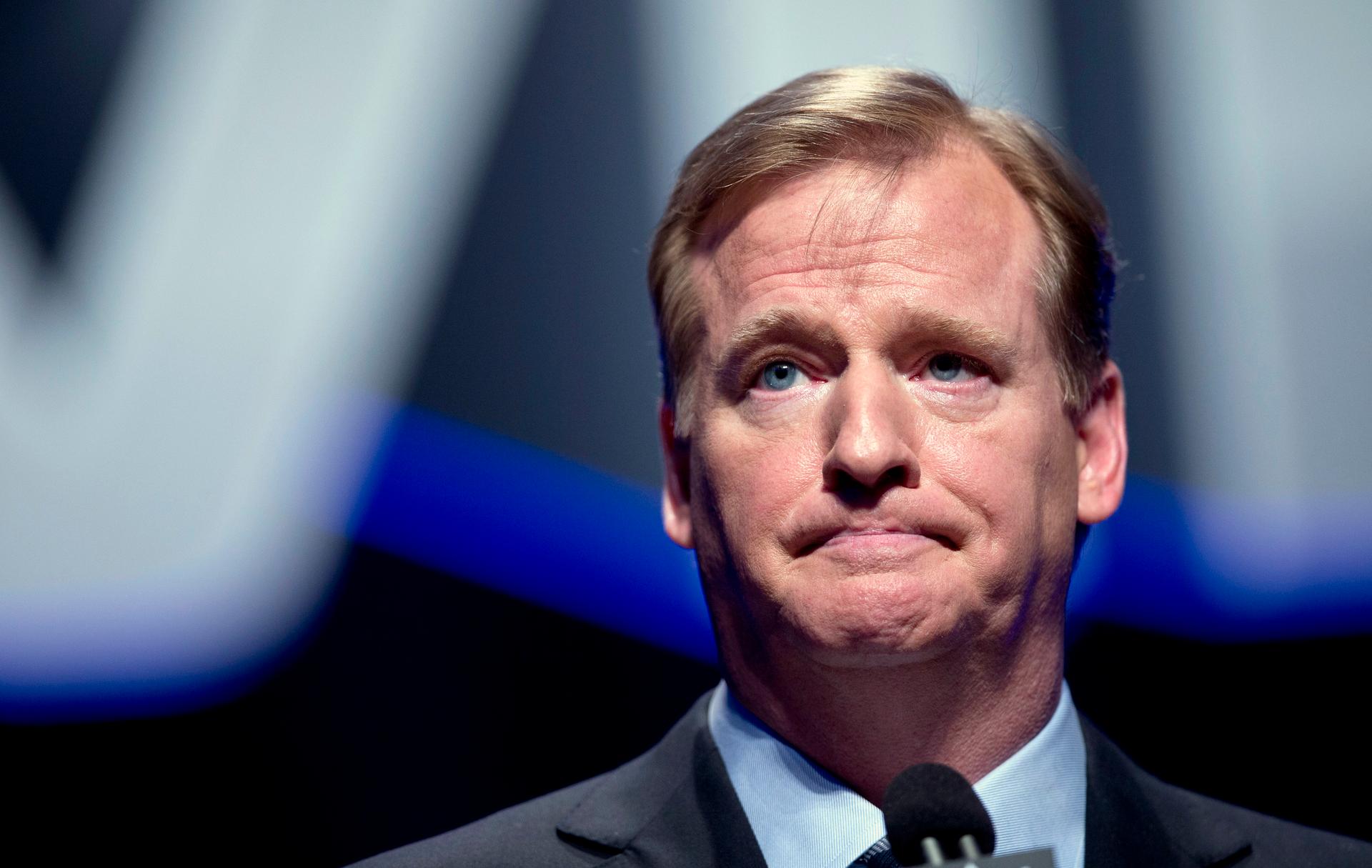The real lesson of the NFL’s scandalous September is that sports fans have power
NFL Commissioner Roger Goodell speaks during a news conference ahead of the 2014 Super Bowl.
We're just a few weeks into the 2014 NFL season, but barely anyone is talking about the games. All of the attention is focused on a barrage of off-field problems.
On Wednesday, news broke that Arizona Cardinals running back Jonathan Dwyer had head-butted his wife and thrown a shoe at his son, according to police. That's in the same week that Texas police arrested Minnesota Vikings superstar Adrian Peterson for beating his four-year-old son with a switch, and just days after TMZ released a video of Baltimore Ravens running back Ray Rice beating his then-fiancé in an Atlantic City elevator.
Dwyer, Rice and Peterson are not alone. According to a USA Today database of NFL arrests, a dozen current players have been arrested for domestic violence or related charges since 2005. Some have successfully fought the charges and some are still awaiting their court dates.
With the recent news, many critics are claiming the league covered up evidence or turned a blind eye to crimes by players, pointing the finger at a "culture of violence" within the NFL.
But others wonder if the league really does foster a culture of violence, or should bear responsibility for the personal lives of its players. The league does have policies on personal conduct, but the rules are infamously subject to change.
“It's notorious for constantly renegotiating and changing legislation — both rules of conduct and rules of play,” says Nicholas Dawidoff, author of Collision Low Crossers: A Year Inside the Turbulent world of NFL Football. “What’s happening right now makes the entire country wince and cringe. These are lurid stories and it’s horrible."
While many people argue league standards don't go far enough, especially for a sport that is so deeply ingrained in American culture, others argue the NFL isn't actually a cultural pillar and shouldn't be held to higher standards than other businesses.
“Without question, the NFL is first and foremost a business,” Dawidoff says.“You can see right now that many people are concerned that the NFL is operating with a certain corporate callousness, or sometimes corporate discomfort. The way that a large institution behaves definitely influences the way that people who work for it behave.”
But if that corporate culture has helped shield problems, the size of the NFL may provide the silver lining for the league's troubles. “The only real good that’s coming out of this is it’s become a public conversation," Dawidoff says. "It’s because there is an NFL — because people like it so much and because people are behaving in this way — that we’re talking about the various things that the NFL is staggering its way through, like domestic violence, animal rights, child abuse, bullying, concussions or gay rights.”
The troubles are starting important conversations about cultural issues at kitchen tables, bars and barbershops. And recent incidents are beginning to influence the league itself.
“One of the things that the NFL has done in the wake of this has been to hire women,” says Jane McManus, who covers the New York Giants and Jets for ESPN. “They’ve hired four women, one who’s going to be a VP of social responsibility, and three others who will be able to advise on issues of domestic violence and personal conduct policies.”
There's also speculation that Roger Goodell could be forced to step down as NFL commissioner. A commonly mentioned replacement candidate is a woman: former Secretary of State Condoleezza Rice, who is an ardent football fan and now sits on college football's new playoff selection committee.
But even as the NFL is bowing to fan pressure by toughening rules and suspensions for domestic abuse and other crimes, many fans simply want the problem to go away — just as much as the league does.
“The NFL is an entertainment product,” McManus says. “The Ray Rice video, I think, opened a lot of people's eyes. When you go to a game on Sunday and you want to scream your heart out for your team, you don’t want to feel conflicted about who you’re screaming for and what they stand for.”
The power of fans to influence a sport, says Harvey Schiller, a longtime executive of various US sporting bodies, may be the key lesson from the NFL's recent scandals. “I think that [fans] have to keep reinforcing what they will and will not tolerate,” he says.
“Every player on the field … is just like any other entertainer. The question of their individual behavior is because they’re in the spotlight every day. I think the NFL is waking up to that — just like every league has had to wake up to it before.”
This story is based on interviews that aired on PRI's The Takeaway, a public radio program that invites you to be part of the American conversation.
